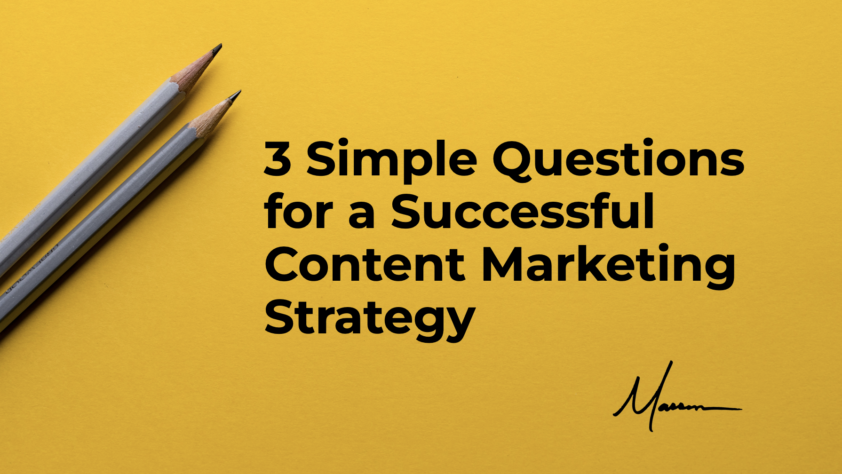10 Reasons Why Content is The New Advertising
Content marketing will be a $600 billion industry in 2024, marking significant growth from last year. This can be attributed to several factors, including increased digital consumption and the rising importance of personalized and targeted content, according to new research from Forbes.*
“Businesses across various sectors recognize the value of content marketing in engaging with their audience, building brand awareness and driving sales, leading to more substantial investments in content marketing strategies and tools,” notes the report.
It’s not that advertising is dead. But businesses are experiencing a dramatic increase in the value of content. Here are 10 reasons why:
We help businesses win customers, grow revenue and gain customer loyalty with content. Let’s talk about your content strategy. Contact us
1. Value Over Interruption
Traditional advertising and most digital advertising often interrupts consumers’ experiences, leading to ad fatigue and worse, resentment. Everyone wants to skip commercials on television, and everyone scrambles to close pop-up ads online and in mobile apps. Content, on the other hand, focuses on providing utility and value to the audience. By creating informative, entertaining, or insightful content, businesses can become a valuable part of consumers’ daily lives instead of getting in the way of it.
2. Trust and Credibility
Content establishes businesses as experts in their field. When a brand consistently delivers valuable content that helps its audience remove pain or achieve a goal, it builds trust and credibility. It is obvious but important to remember–consumers are more likely to engage with and purchase from brands they perceive as trustworthy and knowledgeable.
3. Targeted Reach
Content marketing enables businesses to target specific audiences with direct and timely information. Through data, analytics and consumer insights, companies can identify their ideal customers’ interests, preferences, and pain points. By addressing these needs through content, they can attract highly relevant leads and convert them into customers at any stage in the buying process. Today’s content marketing tools offer a stunning amount of ways to segment audiences and deliver content to the right people at the right time.
4. Cost-Effectiveness
Creating and distributing content online can be more cost-effective than more traditional advertising methods. While paid advertising requires a continuous budget to maintain visibility (and it instantly disappears as soon as the faucet is turned off), high-quality content can continue to drive organic traffic and engagement over time, making it an effective long-term investment. Good content has an almost unlimited shelf life.
5. Enhanced SEO
People seek information every day. It’s one of the reasons Alphabet (Google) is one of the most valuable companies in the world. Google and other search engines prioritize valuable, relevant, and fresh content. By regularly publishing quality content, businesses improve their website’s search engine rankings. This, in turn, increases organic visibility and drives more traffic to their site, all while reducing the need for paid advertising. And it’s not just Google. People are increasingly searching for content on other platforms like YouTube, Reddit and social media sites.
6. Brand Differentiation
Just about every business has several direct competitors offering very similar products and services. Let’s say you’re in the market for a new car. If you visit three different dealerships, they will all likely have the exact same make and model you want. Let’s also assume the prices are all the same or at least very similar. Who will you buy from? The dealer you like the most. Brand differentiation can come down to the intangibles–it’s culture, values and people. Content humanizes brands, making them relatable and memorable. People make decisions with their emotions.
7. Tangible, Measurable Results
While traditional advertising offers measurable results like clicks and impressions, content marketing provides deeper, more tangible results. Businesses can track more meaningful metrics like engagement, social media shares, and sentiment. These kinds of metrics give businesses real insights into how consumers are feeling, how their needs are being met (or not), and what topics they want to know more about. The more you know, the more content you can produce that will resonate with your target audiences, and the stronger the bonds you can build with them.
8. AI and Efficiency
AI tools like ChatGPT and Midjourney have ushered in a new era of content marketing. While human input, oversight and editing are still very necessary, businesses can find great efficiencies using AI for content production. From brainstorming and idea generation to first drafts, AI tools can help remove one of the biggest barriers to content creation–bandwidth.
9. Information Dissemination
The heart of all content marketing initiatives is information. This can take place in many formats–from white papers and blog posts to videos and podcasts–and in many forms, from entertaining to deeply technical. We are in an Information Age of Advertising and that means content. Long form or short form, people want information. Give it to them.
10. Versatility
One high-quality piece of content can be repurposed in a multitude of ways. A white paper, for example, can be divided into a series of blog posts, social media posts and email campaigns, or provide an outline for a video series, podcast or speaking engagement, to name a few. This versatility of content not only offers the potential to connect with consumers wherever they choose to spend their time, it also extends the life of your investment.
Forbes found that some 90% of marketers are engaging in content marketing, with 36% of businesses allocating between 10-29% of their overall marketing budget on content. (21% allocate 30-50% of their budgets.) This is impressive, but not surprising. In a recent study by The Content Marketing Institute, 70% of B2C marketers said that content marketing has become more important to their organization over the last year. We’ve just given you 10 reasons why that is. Yet, many businesses struggle to deploy effective content marketing. The main reason? Lack of resources. High quality content takes time and talent.
If your organization is looking for an effective marketing strategy to attract, convert and retain customers, let us help you by building a strategic content marketing strategy. Contact us, and let’s talk about it.
Also read: 3 Simple Questions for a Successful Content Marketing Strategy




